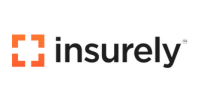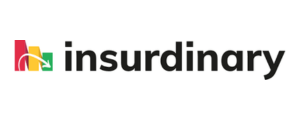Owning a home comes with many responsibilities, especially financial ones. Home insurance is one of the many financial obligations associated with owning a home and is essential to protecting your property and belongings.
By having a policy in place, you can be financially compensated to pay for damages to your home or contents in the event of fire, vandalism, or damage from a natural disaster. Further, you may also be protected against litigation in the event someone hurts themselves on your property.
Read on to learn more about the importance of home insurance and how to buy it in Canada.
Key Points
- Home insurance provides financial protection against damage or loss of your home and belongings due to events like fire, theft, and natural disasters.
- If you’re applying for a mortgage, home insurance is mandatory, as lenders typically want to see proof of a policy in place.
- It’s important to understand what is and is not covered by standard home insurance policies; things like flooding and earthquake damage may require additional coverage.
Is Home Insurance Required By Law In Canada?
It’s not mandatory to have home insurance in Canada. However, the majority of mortgage lenders will require that a property has a home insurance policy before they agree to extend a loan for a home purchase.
Even if it’s not a requirement, having a home insurance policy is highly recommended to protect yourself against financial losses that may arise from damage or theft.
Learn more: Is Home Insurance Mandatory In Canada?
How To Buy Home Insurance
To buy home insurance, follow these steps:
Step 1: Shop Around
Compare quotes from multiple insurance companies to find the best coverage and lowest rates. You can use an online comparison site to expedite this step. Simply input a few details about yourself and your insurance needs, and a list of insurers and their quotes will be populated for easy comparison.
You can also work with a home insurance broker, who will do the shopping for you to find the best policy at the lowest rate.
Step 2: Apply
Complete the insurance provider’s insurance application form and provide all necessary documentation. Information and documents required may include the following:
- Personal Information: Your full name, Your birth date, Social Insurance Number (SIN), Claims history
- Information About The Property:
- Home address
- Age of the home,
- Type of home (ie. single-family home),
- Home construction materials (ie. aluminum siding, brick, etc)
- Square footage
- Roofing details
- Presence of alarm system and smoke alarms
- Renovation history
- Plumbing, heating, and electrical details
- Unique features of the home or property (ie. swimming pool, pool house, etc)
- Who Lives in The Property: Home occupants, pets, tenants
Step 3: Review The Policy
Before you sign on the dotted line, carefully review the insurance policy you’re offered to make sure you understand all terms. In particular, pay attention to what is and is not covered, as well as your premium price, deductible price, and repayment obligations.
Step 4: Wait For Response
After you’ve submitted your application and all relevant documents, your insurance provider will contact you about your policy. Make sure to find out when coverage begins. Home insurance policy coverage usually begins immediately after approval and after you’ve paid your first premium. That said, it’s still a good idea to confirm the exact start date with your insurance company.
Find: Best Home Insurance Companies In Canada
Where Can You Buy Home Insurance?
Home insurance can be purchased from the following:
- Banks
- Credit unions
- Insurance companies
- Insurance brokers
- Online insurance providers
- Online aggregates
Learn more: Best Home Insurance Companies In Canada
Best Home Insurance Providers In Canada
How To Change Home Insurance Providers?
If you want to change insurance providers, you’ll first have to cancel your existing policy with your current provider. Keep in mind that you want to make sure that you always have home insurance and aren’t going without it in between switching companies.
Ideally, you should do this at the time of renewal of your policy to avoid fees. However, you may choose to switch providers mid-contract, but that can lead to fees for breaking your contract early. Insurance companies typically charge a cancellation fee if you end your policy before the end of the term.
To cancel your policy, follow these steps:
Step 1: Review Your Policy
Read over the terms and conditions of your policy to find out the exact cancellation process and if there are any cancellation fees.
Step 2: Call Your Insurance Company
Contact your insurance provider to let them know that you’d like to cancel your policy.
Step 3: Provide Required Information
You’ll need to provide your insurer with information such as:
- Your policy number
- Personal information
- Effective cancellation date
Step 4: Confirm Cancellation
Request written confirmation of your policy’s cancellation to keep for your records.
Learn more: How To Cancel Home Insurance
Factors To Consider When Buying Home Insurance
There are a few things to consider when it comes to buying home insurance to protect your home and the contents within it. Here are a few factors to keep in mind:
Coverage Limits
Be sure that the policy you are buying into will provide you with adequate coverage. The last thing you want is to file a claim, only to find out you are not covered for everything you initially thought you were.
Be sure to choose a policy that covers what you need. Here are the general types of coverage options to consider:
| Insurance Coverage Type | What It Is |
| No Frills | Offers basic coverage for fire damage, but excludes other things, like personal belongings or liability. |
| Basic or Named Perils | Only covers specific risks listed in the policy, such as fire, theft, and vandalism, but doesn’t cover all potential perils. |
| Broad | Covers your home against risks and more expensive items, like the home’s structure. |
| Comprehensive | Offers more extensive coverage, protecting your home and personal belongings against nearly all risks, except for things like earthquakes and flooding, for which additional riders can be added. |
| Personal Liability | Provides protection against lawsuits for injury or property damage caused by you or your family members to others. |
Premium Costs
In order to keep your policy active, you will need to pay your premiums on time every billing period. This is an added bill to pay, so you’ll want to make sure it fits well within your budget. Plus, you may want to compare premiums among a handful of insurance providers before settling on one.
Learn more: Tips For Lowering Your Homeowners Insurance
Deductibles
Before coverage kicks in after filing a claim, you will need to pay a deductible. This amount is in addition to your premiums and is only required when you file a claim. Generally speaking, higher deductibles translate into lower premiums, and vice versa. Consider the deductible before finalizing your home insurance policy.
Learn more: Homeowners Insurance Deductibles
Insurance Provider
Review the insurance provider you are working with. Look into their track record, communication lines, customer service, and financial stability prior to signing on the dotted line.
What Does Home Insurance Cover?
Depending on the exact policy you purchase, home insurance can cover the following:
Property Coverage
| Types of Coverage | Description | Coverage Amount |
| Structure | The actual building will be covered for damage caused by specific perils depending on the policy and includes attached structures, such as a deck or attached garage. It also covers pools and fixed outdoor equipment, such as a swing set. | The replacement cost of the structure. |
| Detached Structures | Detached structures on the property will be covered, including a shed, detached garage, or pool house. | 10% to 15% of the replacement cost. |
| Contents | Your personal property will be covered, which can include your appliances, clothing, artwork, jewelry, electronics, furniture, and so on. | Varies |
| Temporary Living Expenses | If your home is deemed uninhabitable because of extensive damage, your policy will cover temporary living expenses while your home is being repaired or replaced. | Up to 30% of the replacement cost. |
Liability Coverage
| Types of Coverage | Description | Coverage Amount |
| Personal Liability | You will be covered if a lawsuit is brought against you by someone who was injured on your property. | $100,000 to $5,000,000 |
| Medical Payments | Your policy will cover the cost of medical treatment for anyone who is injured on your property. | $1,000 to $10,000 |
| Property Damage | If you unintentionally cause damage to property that is not yours, your policy will reimburse the owner of the property accordingly. | Varies |
Additional Coverage Options
| Types of Coverage | Description | Coverage Amount |
| Flooding | This coverage protects your home against damage from overflowing water, whether from bodies of water or melting snow. | Varies |
| Sewer Back-up | Damage to your home from sewer back-ups overflowing into your home will be covered. | Varies |
| Earthquake | If you live in an area that is vulnerable to earthquakes, you may want to add this coverage, as it’s not typically included in a standard home insurance policy. | The replacement cost of your home. |
| Identity Theft | This type of coverage will reimburse you for any damages associated with identity theft. | $10,000 to $50,000 |
What Factors Impact The Cost Of Buying A Home Insurance Policy?
The price you pay for your premiums will vary a great deal depending on a number of factors, including but not limited to:
- Location of your home. Many factors play a role here, such as proximity to airports, large bodies of water, and a fire hydrant or fire hall, for example. The crime rate in the area is also factored into the location as well.
- Electricals, plumbing, and heating. The electrical wiring, pipes, and HVAC system will all be factored into your premium. In some cases, insurance may be denied if these systems are too old or faulty.
- Upgrades. If a renovation project undertaken has increased the value of your home, you may have to pay higher premiums. On the other hand, certain upgrades may help to reduce the risk of your filing a claim — such as waterproofing your basement — in which case your premiums may be lower.
- Claims history. If you have made many claims in the past, your premiums may be more expensive.
- Swimming pool. Since there is a greater risk of drowning when there is a pool on the premises, your premiums may be slightly more expensive, despite any safety measures you may take.
Learn more: How Is Home Insurance Premiums Calculated?
Final Thoughts
Your home is a valuable asset, so you should do what you can to protect it, and that includes taking out a home insurance policy. Having home insurance can compensate you if your home is ever subject to damage or contents within it are stolen, damaged, or lost. Rather than having to come up with these exorbitant fees yourself to replace your home or your belongings, a home insurance policy can step in and tackle these major expenses for you.







